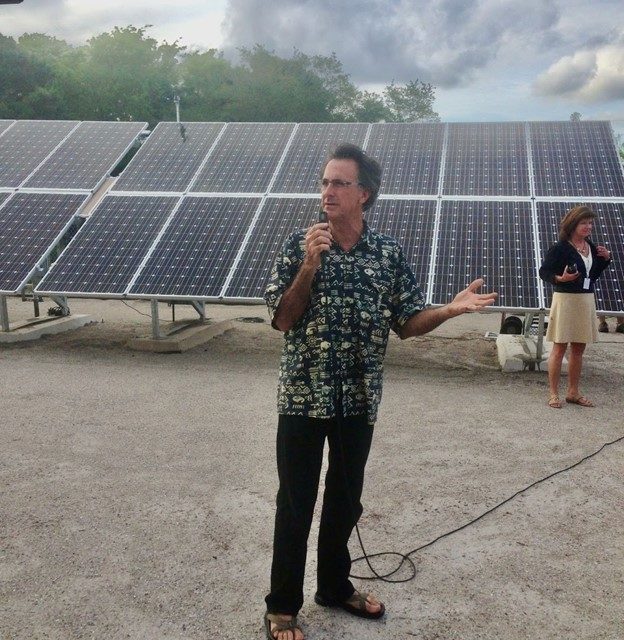Domestically, Florida regularly witnesses various impacts of climate change. Climate scientist Dr. David Hastings shares how recent news events are tied to climate issues.
December 13, 2022 — The Florida peninsula is already suffering the impacts of climate change in previously anticipated and unexpected ways, according to marine geochemist and chemical oceanographer David Hastings. As coastal erosion becomes more problematic and sensitive ecosystems like coral reefs are impacted, other dramatic and devastating news events chronicling the costs of global warming have taken center stage.
David Hastings chronicles new and established impacts of global warming
Florida in the news
In June 2021, a multi-story condominium building in Surfside, Florida, collapsed overnight while hundreds of residents and visitors slept and relaxed. The final death toll registered at 98, and research into the building’s collapse points to the deterioration of subterranean support structures in the building.
Some defects were caused by construction features, such as a pool, within the building, but other points of interest include the potential ingress of saltwater due to proximity to the ocean and prolonged exposure to pooling water after rain events. With rising ocean levels experienced and projected due to climate change, coastal areas are likely to experience more flooding of structures at or near sea level. The areas will also experience more challenges handling storm drainage during normal and significant weather events, such as hurricanes.
Since Florida is a peninsula, the state receives the impact of a hurricane on most of its borders. With climate change, scientists predict that the potential for extreme weather events, including strong hurricanes increases. Often more important than high winds are extreme rainfall and an opportunity for more large storm surges for a prolonged period of time. At the same time, sea level rise means that ocean levels are also climbing. Recent hurricanes, such as Hurricane Ian in 2022, with maximum sustained wind speeds of 150 mph and over $110 Billion in damages and 146 fatalities and Hurricane Michael in 2018, have demonstrated the widespread destruction possible during hurricanes.
Climate change: daily impacts
While occasional weather events dramatically illustrate the consequences of human-induced climate change, scientists like David Hastings realize the impacts of rising sea levels, ecosystem shifts, and increased intensity and frequency of heat waves, and ecosystem shifts add up to catastrophe over time.
Colorful coral reefs in Florida are already being impacted by the effects of climate change; they are bleaching and dying, creating a loss of habitat for many species that thrive in the protected spaces that coral reefs provide. The loss of coral reefs also increases the potential for coastal erosion and flooding at a time when these threats are more prominent due to other impacts of climate change. In addition to these environmental costs, there are monetary costs, as coastal erosion, the loss of coral reefs, and extreme weather impact tourism and businesses in a state reliant on tourism dollars.
Economic impacts will be felt more directly due to flooding as cities and the state scramble to increase stormwater drainage capacity and address flooding potential. The costs of flood prevention are high, and solutions are never perfect, making them a risky investment. With the risk of flooding, real estate prices climb in areas with better drainage and higher elevation, leaving the most vulnerable populations at risk during future flood events. Over time, this can shift the demographics of Florida and force many from the state.
The long-term consequences of human-caused climate change include substantial human migration, which will strain the environment in new and different ways. Florida is already demonstrating how quickly these changes have real-world consequences on human lives and the environment.




